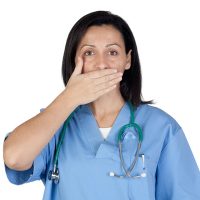What Are The Most Common Medical Errors?

Caring for the physical health of another person requires an almost impossible balancing act of long-term and short-term planning and in-the-moment judgments. It is not possible to do it perfectly, as anyone who has ever been a full-time caregiver to a child or medically vulnerable adult knows. Healthcare facilities such as hospitals, doctors’ offices, and nursing homes are legally required to ensure that there are enough employees in each role on duty at any given time to avoid preventable safety hazards; they must also document the patient’s condition and their interactions with the patient so that other staff members who treat the patient can make informed decisions about what to do next. When a patient suffers a serious injury because of a medical error, the patient has the right to seek damages from the doctor whose error caused the injury or the healthcare facility where the patient was undergoing treatment. The doctor or facility could also receive disciplinary action from regulatory bodies, and in cases of intentional harm or extraordinary negligence, the responsible individuals could even receive criminal penalties. To find out more, contact a Columbia nursing home abuse lawyer.
The Most Common Medical Errors in Inpatient and Residential Facilities
Most medical errors are not cases of know-it-all doctors who make non-emergency decisions without even consulting patients’ medical charts or distracted surgeons who are too busy flirting with nurses to pay attention to the surgery. Sometimes serious adverse consequences can occur from minor errors, such as a nurse changing a catheter too quickly or forgetting to change her gloves before attending to a different patient. These are the medical errors that cause the greatest number iatrogenic adverse events (illnesses and injuries caused by medical treatment):
- Urinary tract infections in patients with urinary catheters
- Bloodstream infections in patients with central venous catheters
- Injuries from falls
- Complications from childbirth
- Pressure ulcers
- Surgical site infections
- Pneumonia in patients with ventilators
Surgical errors in which a surgeon performs the wrong procedure or operates on the wrong body part are much rarer than any of the above medical errors, although this type of surgical error is so egregious and so preventable that it is much more likely to result in disciplinary action against the surgeon or hospital. Patients in hospitals and nursing homes are, by nature, vulnerable to infection, and inadequate infection control is one of the most common reasons for nursing homes to be cited for violations. If a family member of yours suffered an infection related to a pressure ulcer, urinary catheter, IV line, or surgical wound while receiving care in a hospital or nursing home, it could be due to the facility’s negligence, and you could be entitled to damages.
Let Us Help You Today
The personal injury lawyers at the Stanley Law Group can help you if your family member suffered a preventable infection or other preventable health complication due to an error by nursing home staff. Contact The Stanley Law Group in Columbia, South Carolina or call (803)799-4700 for a free initial consultation.
Source:
ncbi.nlm.nih.gov/books/NBK430763/

